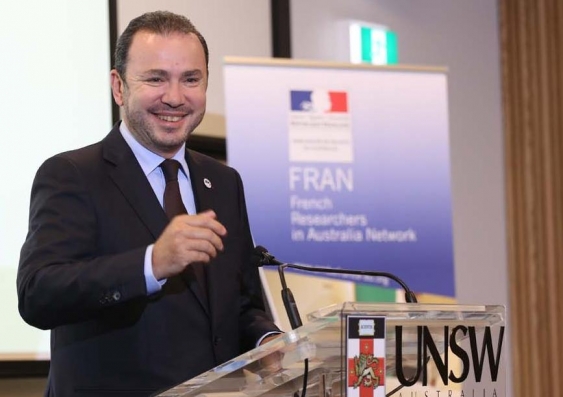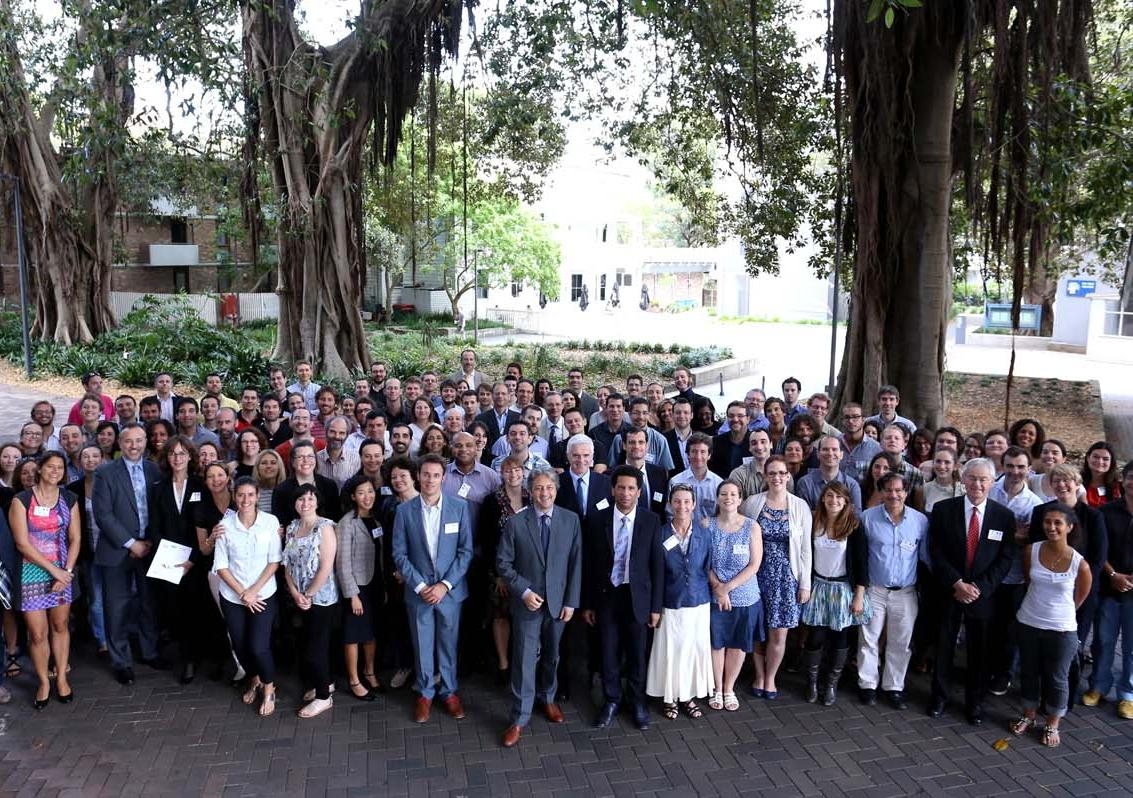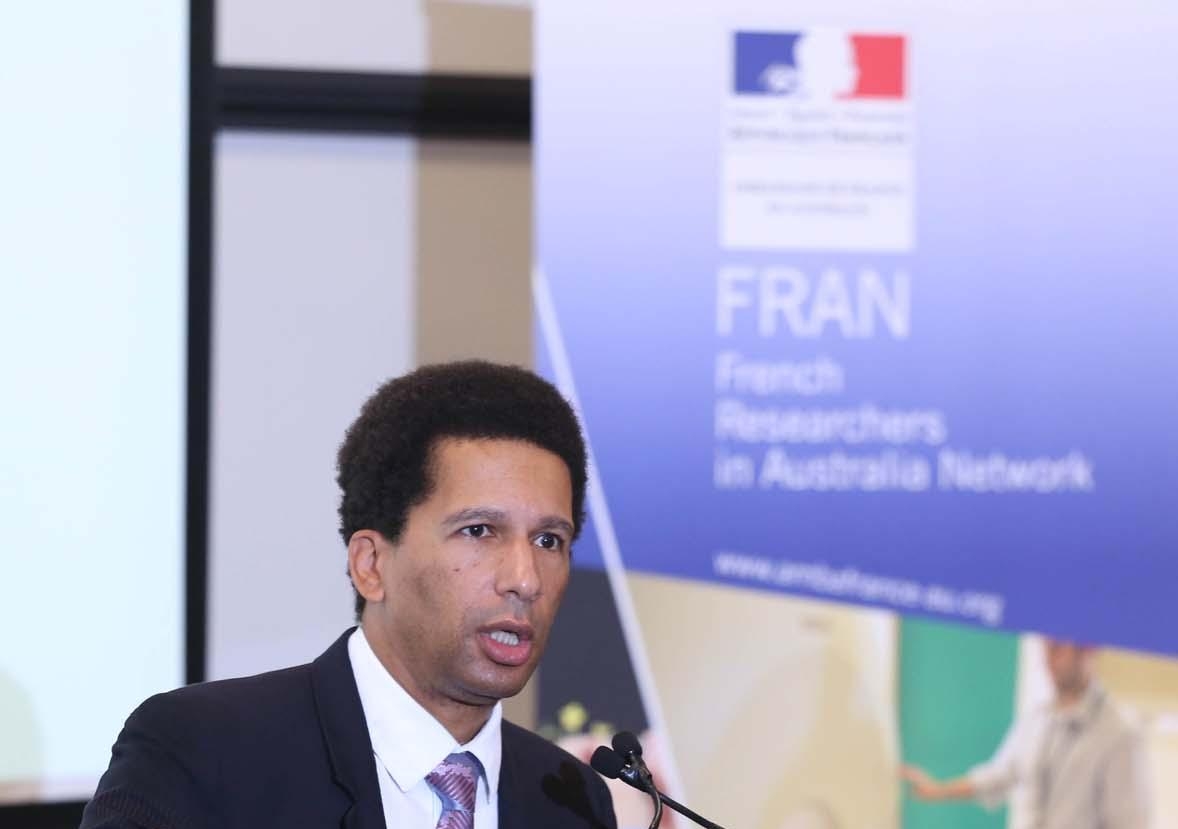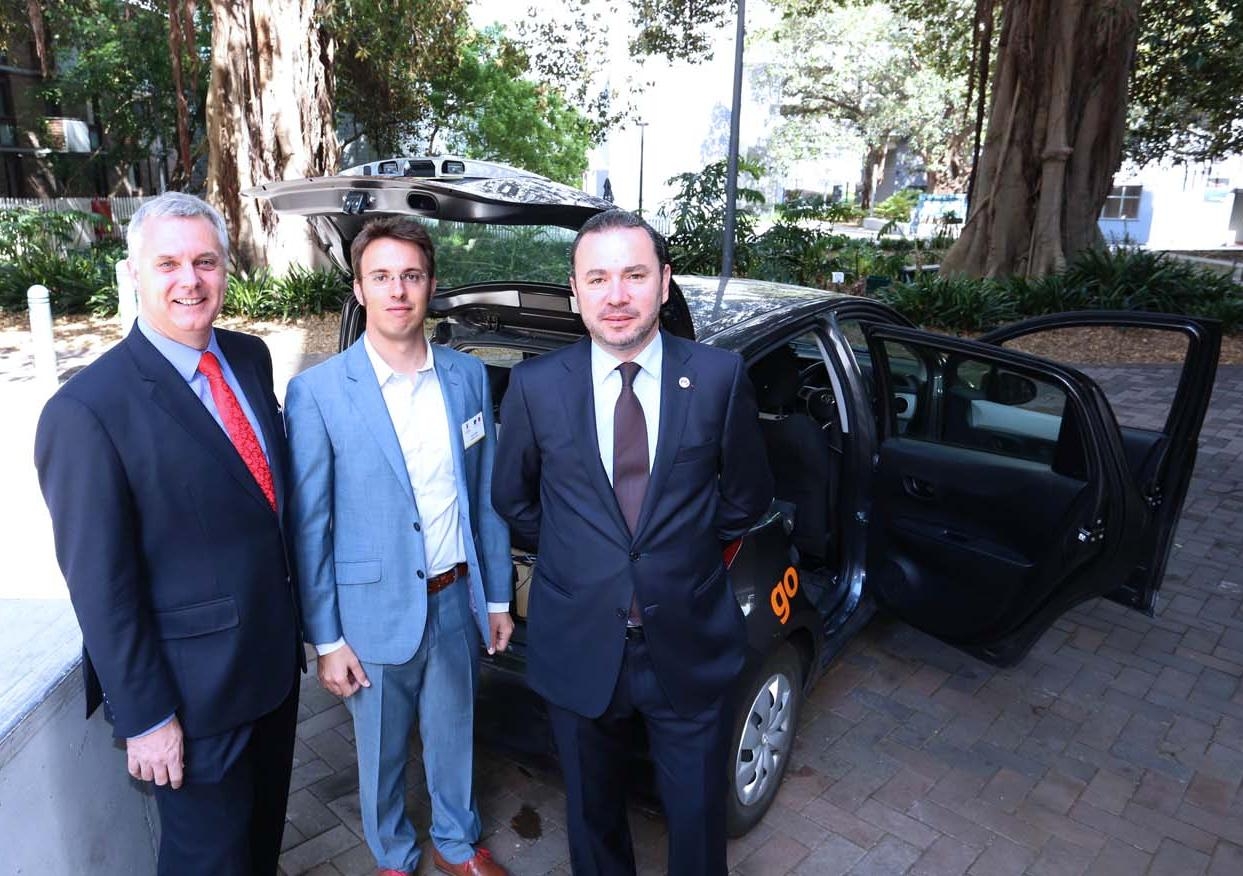Effective adaptation to climate change is one of the most pressing challenges faced by humanity, France’s Ambassador to Australia Mr Christophe Lecourtier has told more than 130 French researchers meeting at UNSW.
Providing solutions to this challenge requires novel approaches from international researchers, which cut across disciplinary boundaries, Mr Lecourtier said.
The Ambassador made the comments while opening the third annual forum of French Researchers in Australia Network (FRAN), jointly hosted by the Embassy of France, UNSW and the Australian Academy of Science.
The primary aim of the Australia-wide network – the first of its type outside France – is to facilitate information sharing, advice and support, and to assist collaborations between French and Australian scientists and industry.
By the end of the year, more than 430 collaborative agreements will have been signed between French research institutions and Australian universities, the Ambassador said.
Joining Mr Lecourtier to open the two-day forum were France’s Ambassador for the Environment Mr Xavier Sticker, Federal President of the French-Australian Chamber of Commerce and Industry, Mr Bruno Gutton and UNSW’s Pro-Vice-Chancellor (Research) Professor Mark Hoffman.
The forum coincided with the arrival in Sydney of French President Francois Hollande, who became the first French leader to visit Australia when he attended last week's G20 conference.
Two representatives from the French government travelling with the President delivered special addresses to the delegates: Ms Marie-Hélène Aubert, Presidential adviser on the Environment and Climate, and Mr Nicolas Bériot, Secretary General to the National Observatory of the effects of climate change.
Mr Lecourtier told the forum this year’s theme of climate science was of particular interest to France, ahead of international climate talks in Paris next year.
“It is timely that this forum brings together France and Australia on a priority theme of climate science and to unite science and industry by enhancing collaborative efforts for innovation and commercialisation of interests,” he said.
UNSW is home to Australia’s leading climate science researchers, based in the Climate Change Research Centre and the cross-institutional ARC Centre of Excellence for Climate System Science.
The Director of the ARC Centre of Excellence, UNSW Professor Andy Pitman, told the forum that tracking extreme weather events revealed the extent of human-induced climate change.
Recent extreme weather such as Australia’s record-breaking temperatures in 2013, “are off the charts”, he said.
He dismissed claims the record temperatures were part of natural variability.
It would be like Usain Bolt suddenly running 100 metres in 9.2 seconds, he said. “Most would say that kind of improvement is only possible through performance enhancing drugs – you just couldn’t get those results without it.
“It’s the same in climate science: These results don’t come unless there’s a drug, and that drug is Co2,” Professor Pitman said.
The focus of the second day of the forum is on “industry linkage” to explore possibilities for research partnerships and bilateral trade using the FRAN network.
Dignitaries inspected two UNSW-led French–Australian innovations: Australia’s first hydrogen powered bicycle that can take riders up to 125km on a single battery charge; and a prototype of a self-driving car, an industry collaboration with GoGet.
Media contact: Steve Offner, UNSW Media, 02 9385 1583





